LEARN Mentorship Program | Supported by the Jacobs Foundation
The LEARN Mentorship Program empowers early-career scholars from the Majority World to strengthen research capacity and advance expertise in child development through focused guidance in research methodology, scholarly publishing, and peer review.
The LEARN Mentorship Program is not currently accepting applications for mentors or scholars. Future opportunities for ad hoc involvement may arise.
The Leverage Empower Advance Research Network (LEARN) Mentorship Program is a two-year initiative funded by the Jacobs Foundation. The program supports 18 early-career scholars based in Ghana and Colombia, providing tailored mentorship to strengthen their contributions to child development science.
LEARN was developed through a partnership with the Society for Research in Child Development (SRCD), the International Society for the Study of Behavioral Development (ISSBD), New York University, Universidad de los Andes (Colombia), and the University of Cape Coast (Ghana).
LEARN supports SRCD’s broader mission of advancing equitable research capacity and emphasizes our commitment to global scientific collaboration. Through dedicated mentorship in research methods, scholarly publishing, and peer review —including collaboration with SRCD’s Reviewer Zero Global pilot—LEARN bridges global research disparities, amplifies Majority World voices, and drives impactful global research collaboration through 2027.
- Strengthen research skills in child development science for early-career scholars in Ghana and Colombia.
- Provide tailored mentorship in research methodology, statistical analysis, proposal writing, scholarly publishing, and peer review.
- Build sustainable international research networks, collaborative opportunities, and professional development products.
- Contribute to the global advancement of child development research through knowledge-sharing and equitable capacity-building.
LEARN pairs early-career scholars with experienced mentors specializing in two primary areas:
- Methodological Mentors: Experts in research design, longitudinal methods, psychometrics, proposal development, and statistical software (R, SPSS, Stata)
- Scholarly Publishing & Peer Review Mentors: Experts in academic publishing and peer review processes, including participation in SRCD’s Reviewer Zero Global Pilot, which trains both scholars and mentors in constructive peer review practices.
Additionally, scholars receive guidance from Primary Mentors, recruited through partner organizations, who provide research support based on regional and disciplinary expertise.
- Honorarium: Competitive stipend based on role and engagement level.
- Global Network Expansion: Connection with international researchers and institutions.
- Professional Development: Hands-on experience in mentorship, peer review, and research training.
Methodological Mentors:

Dr. Roya Abbasi-Asl
Roya Abbasi-Asl, Ph.D., is a Research Assistant Professor at the Institute for Applied Research in Youth Development at the Eliot-Pearson Department of Child Study and Human Development at Tufts University. Her research focuses on understanding three key sources of variability—within-person, within-group, and contextual—in the learning and development of children and youth, including moral and character development and social-emotional learning, and how these variabilities affect their health, well-being, and overall thriving. Her goal is to provide child and youth development organizations in LMICs—such as Thanda in South Africa, Compassion International (currently operating in 29 majority world countries), and CoSchool in Colombia—with actionable insights, enabling them to create person-specific interventions that empower every young person to thrive.

Dr. Lucinda Adjesiwor
Lucinda Adjesiwor, Ph.D., MSW, is a researcher committed to advancing health equity and child well-being. She completed her Ph.D. in Social Work at the University of Southern California. Her research focuses on childhood adversity, child maltreatment, family stress and behavioral health. Using a family systems and resilience lens, she explores both the challenges and strengths experienced by vulnerable families. Her work informs families, child welfare professionals, early childhood educators, and policymakers, shaping interventions that foster stability and support.
With expertise in quantitative and mixed methods, implementation science, and community-engaged research, she has published in leading academic journals, including the Journal of Marriage and Family, Children and Youth Services Review, Journal of Affective Disorders, and Journal of Research on Adolescence. Dr. Adjesiwor combines applied research with statistical training to support emerging scholars in producing rigorous, equity-focused work that drives policy and practice innovations.
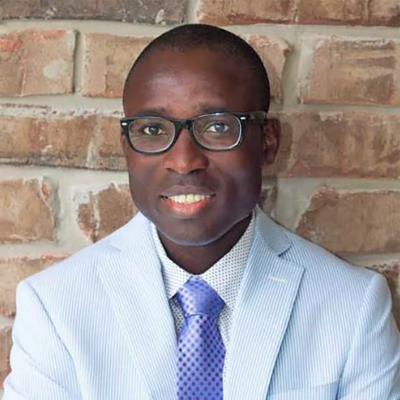
Dr. Philip Baiden
Dr. Philip Baiden is an accomplished academic, researcher, and educator, currently serving as an Associate Professor in the School of Social Work at the University of Texas at Arlington, and as an Associate Editor for the Journal of Research on Adolescence. His career centers on advancing the well-being of vulnerable and marginalized populations, with a research focus on social determinants of health, adverse childhood experiences (ACEs), suicide prevention, adolescent mental health, and youth well-being in Sub-Saharan Africa. Dr. Baiden’s research interests address urgent and complex issues in contemporary social work, including the long-term effects of early adversity, adolescent risk behaviors, and cross-cultural mental health disparities. He is particularly interested in designing and evaluating social interventions that improve outcomes for children and youth involved in welfare and juvenile justice systems. Highly skilled in quantitative research, Dr. Baiden works extensively with large-scale secondary datasets and conducts rigorous intervention studies.
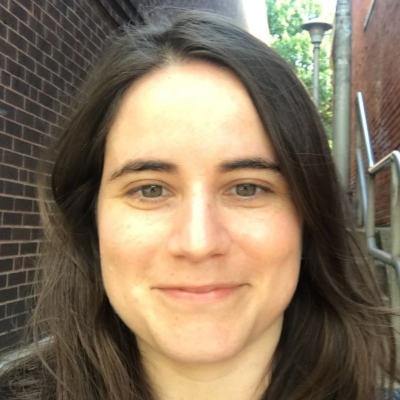
Dr. Laura Betancur
Laura Betancur, Ph.D., is a Research Associate at the Urban Institute. She received her Ph.D. in Developmental Psychology from the University of Pittsburgh in 2020. She has over a decade of experience in conducting quantitative research with large longitudinal datasets to bring evidence to pressing issues such as family income instability and poverty, family access to child care services, and child care workforce retention. Through her career, she has been focused on understanding the processes that link contexts to child wellbeing, focusing on disadvantaged populations in the U.S. and in low- and middle-income countries (LMIC). Her work involves studying the services for low-income children in the U.S., including Head Start, state-provided pre-kindergarten, and the child care subsidy system. Her research is also focused on studying inequality issues that have consequences on children and families, such as income and income volatility and wealth differences. She also has multiple years of experience doing field and secondary data research in LMIC. While earning her master’s degree in Colombia, she assessed the quality of over 70 preschool classrooms using U.S. standardized assessments, finding that the quality of preschools serving low-income families was inadequate, but that there were issues when using the U.S. measurement in the Colombian context (Betancur et al., 2021). For her dissertation project, she studied whether there are long-term benefits of attending early childhood education (Betancur et al., 2025) and whether this could be a mechanism that could help close disparities between urban and rural children in India and Peru (Betancur et al., 2024).
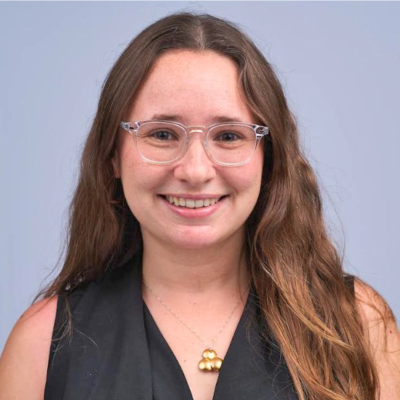
Dr. Catalina Canizares
Catalina Canizares, Ph.D., is a Postdoctoral Fellow/Assistant Professor in the Department of Applied Psychology at NYU Steinhardt School of Culture, Education, and Human Development. Her research focuses on reducing suicide ideation and attempts among adolescents by applying her expertise in data science and statistical programming in R. She specializes in using large-scale public datasets to train and test machine learning algorithms to predict suicide attempts in high school populations. Catalina's work is inherently interdisciplinary, involving collaborations with psychologists, social workers, and biostatisticians. Her goal is to harness the power of publicly funded data to advance the field of suicidology through the use of innovative statistical methods. She currently leads research projects under the A Research Center for Adolescent Interdisciplinary Approaches (ARCADIA) for Suicide Prevention, where she investigates environmental influences on suicidal behaviors, the effects of missing data and imputation in modeling with census data, and the development of robust data management systems. As part of ARCADIA, Catalina is developing an R package that includes curated datasets from all timepoints of a randomized controlled trial, alongside reproducible functions to facilitate analysis. She also led the development of the open-source R package for the Youth Risk Behavior Surveillance System. This package transforms the static data repository into a dynamic, user-friendly system by including cleaned datasets and comprehensive tutorials to support users throughout the analytic process.
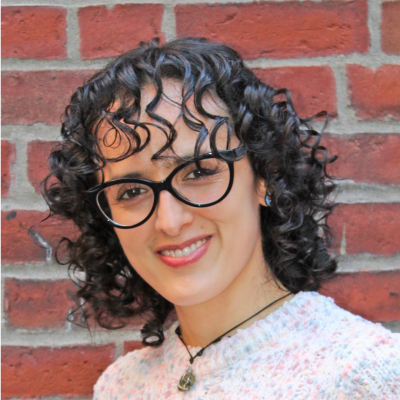
Dr. Johana Chaparro-Moreno
Johana Chaparro-Moreno, Ph.D., is a Postdoctoral Scholar at Boston University’s Center on the Ecology of Early Development. Her research bridges education, child development, and technology to examine the diversity of learning experiences of children in inclusive, multilingual early childhood education settings. She examines how these experiences lead to different developmental trajectories and uses this knowledge to inform the design of classroom language models. Taking a practice-oriented approach, Johana leads a project in partnership with an Early Head Start program to adapt and implement equity-focused practices in infant and toddler multilingual classrooms. In parallel, she develops guides for researchers and practitioners on how to use methods—including sensing technologies—to efficiently collect and analyze data on children's learning experiences in linguistically diverse classrooms. Previously, Johana served as an Educational Program Evaluator at Universidad de los Andes (Colombia). In this role, she collaborated with interdisciplinary teams to design middle and high school student assessments for the national education system in Panamá. She also contributed to evaluating the effectiveness of technology-enhanced teaching strategies in Colombian higher education, including the implementation of blended learning methods. Her work has been supported by the American Psychological Association, the Tinker Field Research Grant program, and other fellowships.

Juan Camilo Cristancho
Juan Camilo Cristancho is a Colombian Ph.D. candidate in Education (Educational Policy and Social Context) at the University of California, Irvine. His research centers on early childhood development and education in global contexts, with a particular focus on how exposure to community violence shapes children’s cognitive and socioemotional outcomes. He also studies the development and evaluation of early childhood education policies. His work has been published in Child Development, the Journal of Youth and Adolescence, and other peer-reviewed journals. Before beginning his doctoral studies, Juan Camilo worked as a researcher at Universidad de los Andes in Bogotá, Colombia, and served as a consultant for the Inter-American Development Bank. He holds bachelor’s and master’s degrees in economics, as well as a master’s degree in public policy, all from Universidad de los Andes.
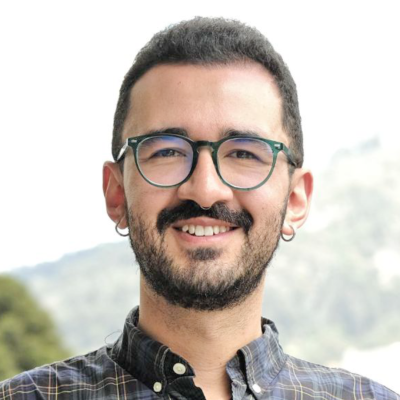
Dr. Jorge Cuartas
Jorge Cuartas, Ph.D., is an Assistant Professor in the Department of Applied Psychology at New York University. He is the director of the Catalyzing Action for Resilient Ecologies (CARE) lab. He holds a PhD and EdM in Human Development from Harvard University, as well as degrees in economics from Universidad de los Andes and Universidad Jorge Tadeo Lozano. His research lies at the intersection of developmental psychology, economics, and public health, focusing on resilience, the prevention of violence against children, early childhood interventions, and the links between climate change and human development. He employs advanced quantitative methods including econometrics, psychometrics, and meta-analysis. His work has been published in leading journals such as The Lancet, Nature Human Behaviour, Child Development, Developmental Psychology, and Developmental Science. He has received multiple honors, including the American Psychological Association’s Early Career Outstanding Paper Award and Dissertation Award, the Society for Research in Child Development's Victoria S. Levin Award, the National Academy of Education/Spencer Dissertation Fellowship, and fellowships from the Early Childhood Development Action Network and the Harvard Center on the Developing Child.
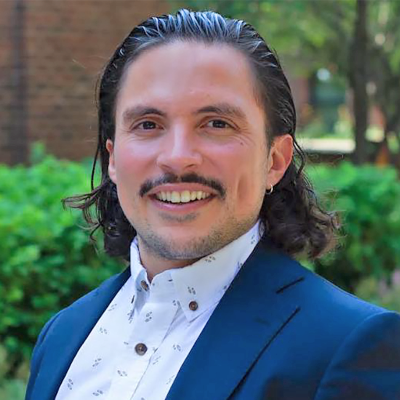
Dr. Juan Del Toro
Juan Del Toro, Ph.D., is an Assistant Professor at the Department of Psychology at the University of Minnesota, Twin Cities. He received his Ph.D. in Developmental Psychology with a concentration in Advanced Quantitative Analyses from New York University, and he completed his postdoctoral training at the University of Pittsburgh. As a developmental psychologist, Dr. Del Toro distinguishes between perpetrators of racial discrimination and racial socialization to inform setting-specific policies and interventions working to improve the well-being of all youth. His work has led to 60 peer-reviewed publications, many of which are first-authored articles in PNAS, JAMA Pediatrics, American Psychologist, Child Development, JAACAP, and American Journal of Epidemiology. Del Toro has also received numerous awards, including APA Div. 7’s Boyd McCandless Award, APS ’Janet Taylor Spence Award, SRA’s Social Policy Publication Award, and AERA’s Palmer Johnson Memorial Award.
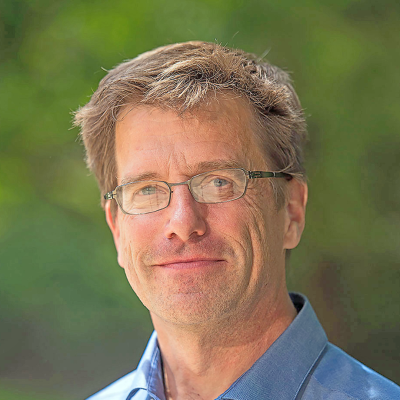
Dr. Andrew (Andy) Grogan-Kaylor
Andrew Grogan-Kaylor, Ph.D., is the Sandra K. Danziger Collegiate Professor of Social Work. His interests are in developing more knowledge to reduce violence against children and Adverse Childhood Experiences (ACEs), with the aim of improving child and family well-being. His current research focuses on parenting and child development using international data. A particular focus of his work has been to examine the outcomes of physical punishment. In his work, he uses advanced statistical models, like multilevel models and some econometric models, and software like Stata, R and GIS, to examine things like growth and change over time, or community, school or parent effects on children and families.
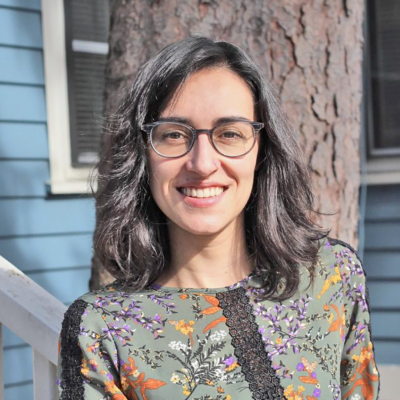
Dr. Catalina Rey-Guerra
Catalina Rey-Guerra, Ph.D., holds a Ph.D. in Applied Developmental and Educational Psychology and an M.S. in Human Development from Boston College, as well as an M.S. in Public Policy and Economics from Universidad de los Andes in Colombia. Her research focuses on early childhood development and parenting in global contexts, with a particular emphasis on Latin America and the Caribbean. She is especially interested in exploring gender disparities in pre-academic skills and examining the roles of gender-differentiated maternal, paternal, and caregiver engagement in promoting early learning opportunities for children.
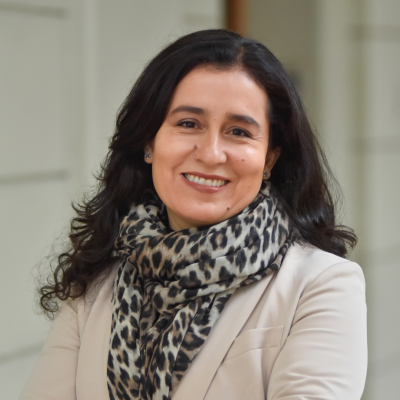
Dr. María Inés Susperreguy
María Inés Susperreguy, Ph.D., received her Ph.D. in Education and Psychology from The University of Michigan in 2013. She is an Associate Professor in the Faculty of Education at the Pontificia Universidad Católica de Chile (PUC), in Chile, and the director of the Millennium Nucleus for the Study of the Development of Early Math Skills (MEMAT). Her research has focused primarily on the contextual influences of child development and the social-emotional and cognitive aspects involved in children’s math learning. She is particularly interested in how families promote the development of early math skills in children from diverse populations, particularly Latin-American children.
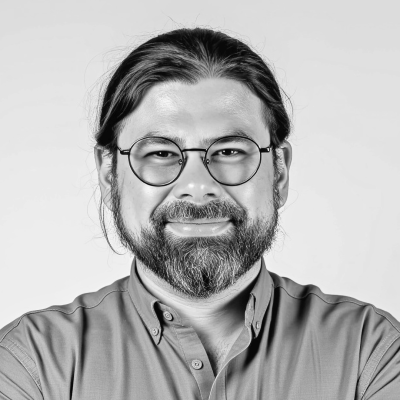
Dr. David Torres Irribarra
Dr. David Torres Irribarra is a psychologist from the Pontificia Universidad Católica de Chile and holds a Ph.D. in Education from the University of California, Berkeley. His research focuses on measurement in the social sciences, particularly the application of item response theory in educational contexts. He has served as Director of Information Technologies at the BEAR Center at UC Berkeley and is currently an associate professor in the School of Psychology at the Pontificia Universidad Católica de Chile. David has worked as a senior psychometrics consultant for national assessments in Chile, including the redesign of the university admissions test (DEMRE), early childhood surveys (UNICEF/Ministry of Social Development), and the assessment of personal and social development (ACE). He has also contributed to international projects in Latin America and the U.S. His research spans latent variable modeling, the theoretical foundations of measurement, and the use of digital technologies in educational assessment.

Dr. Emily Weiss
Emily Weiss, Ph.D., is an Assistant Professor of Evaluation, Statistics and Measurement in the Educational Psychology department at Rutgers University, Graduate School of Education. She specializes in structural equations modeling, psychometrics, longitudinal analysis, and mixture modeling, and applies these approaches to investigate patterns of individual differences and the proximal and sociocultural contexts that shape children’s development. Her research examines self-regulatory, behavioral, and social-emotional capacities that enable children from diverse backgrounds to thrive in educational settings. Dr. Weiss received her PhD with distinction in Quantitative Methods at the University of Pennsylvania Graduate School of Education and also holds an MA in Statistics from The Wharton School and an MS in Applied Developmental Psychology from Portland State University.
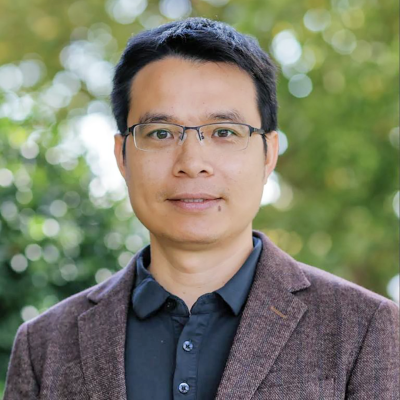
Dr. Songtian (Tim) Zeng
Songtian (Tim) Zeng, Ph.D., received his PhD in special education from the University of Washington in Seattle and he is a Board Certified Behavior Analyst (BCBA). His research focuses on early intervention and assessment for students with autism and other neurological disabilities. He takes a “Whole Child” approach that integrates evidence-based practices from both education and mental health disciplines. To support “Whole Child” education, Zeng's research agenda centers on evidence-based practices, teacher and parent training, and program quality improvement. These three lines of research are grounded in his belief that evidence-based practices (EBPs) can impact student outcomes if implemented with fidelity by well-prepared educators in high-quality inclusive settings. He has supported program evaluation and quantitative data analysis in a number of federally and state-funded research projects at the University of Washington Childcare Quality and Early Learning Center for Research and Professional Development, the National Ce
Scholarly Publishing/Peer Review Mentors
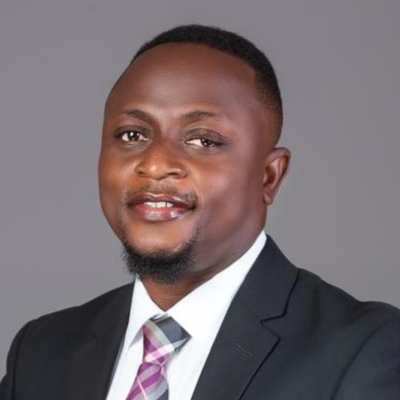
Dr. Richardson Addai-Mununkum
Richardson Addai-Mununkum, Ph.D., is an Associate Professor of Curriculum and Pedagogy at the University of Education, Winneba, Ghana. With academic roots at the University of Cape Coast—where he obtained both his Bachelor of Education and Master’s degrees—he later earned his Ph.D. in Curriculum and Instruction from the University of Wisconsin-Madison, USA. His research spans informal curricular spaces, Sustainable Development Goals (SDGs), and digital pedagogies, with a focus on their transformative potential in African and global education contexts. A widely respected scholar and curriculum expert, Prof. Addai-Mununkum has contributed to teacher education and curriculum reform initiatives in Ghana, Malawi, and the United States, serving as a consultant on several national and international projects. He is the author of three books, a monograph, and numerous peer-reviewed publications, and has received notable honors, including the African Humanities Programme Postdoctoral Fellowship (2022) and the Carnegie Corporation of New York Fellowship (2023). A trusted peer reviewer for leading academic journals, he continues to influence scholarship and practice in education. Beyond research and teaching, Prof. Addai-Mununkum is deeply committed to mentorship. He has guided graduate students, early-career academics, and emerging educational leaders across Africa and beyond—nurturing the next generation of scholars with a blend of academic rigor and professional insight.
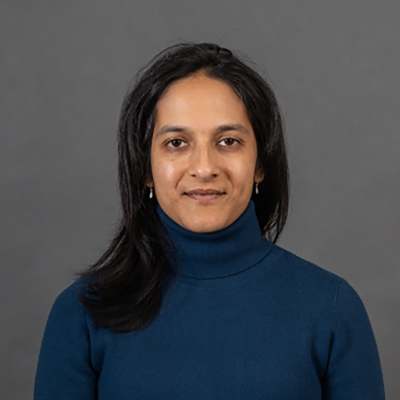
Dr. Sudha Arunachalam
Sudha Arunachalam, Ph.D., is a Professor of Communicative Sciences and Disorders at New York University. She holds a Ph.D. in Linguistics and M.A. in Psychology from the University of Pennsylvania, and a B.A. in Linguistics from the University of Southern California. In her research program, she examines how infants, toddlers, and preschoolers acquire language. She studies acquisition in children who are developing typically, autistic children, and children with late language emergence. In collaborations with researchers around the world, she has studied these issues in languages other than English, including German, ASL, Mandarin, and Korean. This interdisciplinary work integrates insights from the fields of communication disorders, linguistics, and cognitive and developmental psychology, and it involves several behavioral methods with a focus on eye-tracking. She was previously an Editor of the Language section of the Journal of Speech, Language, and Hearing Research, and she is the current Editor-in-Chief of the journal Language Acquisition. She is an ASHA fellow.
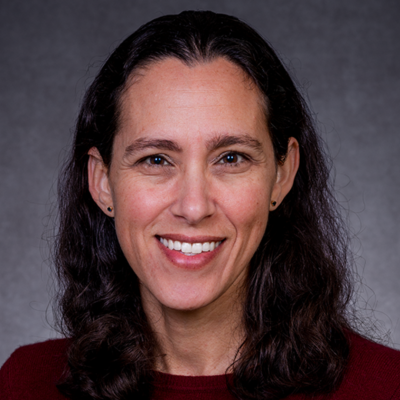
Dr Judith Danovitch
Dr Judith Danovitch is a Professor of Psychological and Brain Sciences at the University of Louisville, where she directs the Knowledge in Development (KID) lab. Dr. Danovitch earned her PhD in Psychology from Yale University in 2005. Her research focuses on how preschool and elementary school children think about knowledge and expertise, and how they evaluate different types of information sources, including people and technology. Dr. Danovitch’s research has been funded by the National Science Foundation, the National Institutes of Health, and the Templeton Foundation. She has published over 50 articles in scientific journals and has written about child development for the New York Times.
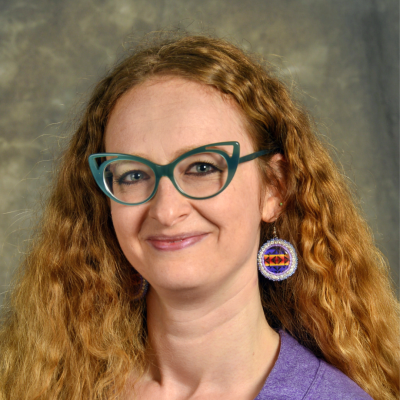
Dr. Flóra Faragó
Flóra Faragó, Ph.D., is an Associate Professor in Human Development and Family Studies at Stephen F. Austin State University. Flóra has a background in developmental psychology and early childhood education. She was born in Budapest, Hungary and moved to Texas in 1998, where she earned her B.A. and M.S. degrees in Psychology at the University of Texas at Dallas and her Ph.D. in Family and Human Development from Arizona State University in 2016. Her teaching and research interests center around children’s racial and gender prejudice and stereotype development, anti-bias and anti-racist curricula and parenting, and inclusive early childhood education surrounding race and gender. Dr. Faragó is particularly interested in the link between research and community activism. She volunteers and conducts research with community agencies and colleagues in Kenya. She collaborates with colleagues and organizations nationally and internationally, including the Indigo Cultural Center, Local to Global Justice, the Jirani Project, and the Girl Child Network. You can learn more about Flóra’s work at www.florafarago.com.
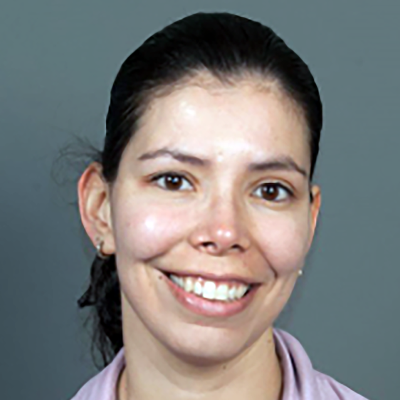
Dr. Nayeli Gonzalez-Gomez
Nayeli Gonzalez-Gomez, Ph.D., is a Reader in Psychology at Oxford Brookes University and Co-Director of the Centre for Psychological Research. Since 2013, she has led the Oxford Brookes Babylab, where she investigates the roots of language acquisition by exploring speech perception in infancy. Her research focuses on how infants learn the phonological properties of their native language, the mechanisms underlying this acquisition, and how such knowledge supports later lexical development, including word segmentation and early word learning. She is particularly interested in how environmental and maturational factors—such as preterm birth, socioeconomic status, and disruptions like the COVID-19 pandemic—affect early language development. Nayeli also leads interdisciplinary projects supporting preterm infants and families from underserved communities and is committed to bridging academic research with community engagement.
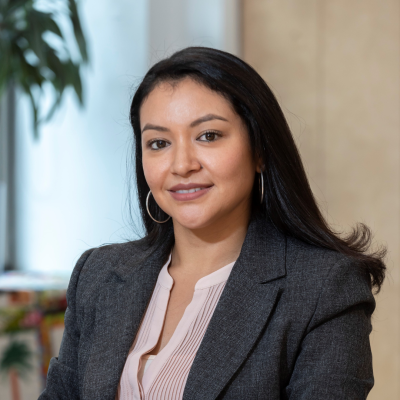
Dr. María Fernanda Piñeros-Leaño
María Fernanda Piñeros-Leaño, Ph.D., is a Colombian-born Associate Professor at the Boston College School of Social Work and a Faculty Affiliate at both the Schiller Institute for Integrated Science and Society and the Institute of Early Childhood Policy. She holds a Ph.D. in Social Work, Master of Public Health, Master of Social Work, and a B.S. in Psychology from the University of Illinois at Urbana-Champaign. Dr. Piñeros-Leaño is the founding director of the MACONDO Research Lab, where she leads interdisciplinary, community-engaged research focused on improving health and mental health outcomes for migrant and immigrant families in the U.S. and Latin America. Her work has been supported by the National Institutes of Health and the Hilton Foundation, among others. She has authored over 60 peer-reviewed publications and multiple book chapters on topics including perinatal mental health, cultural adaptations of evidence-based mental health interventions, cultural stress, and trauma-informed care. A committed mentor and educator, Dr. Piñeros-Leaño has guided numerous doctoral and master’s students and serves on editorial boards and national committees advancing equity in research. Her long-term goal is to reduce mental health disparities through culturally responsive, community-engaged, evidence-based interventions. As a Mentor for the LEARN Program, she brings deep expertise in global mental health, a passion for inclusive scholarship, and a strong commitment to supporting early-career researchers.
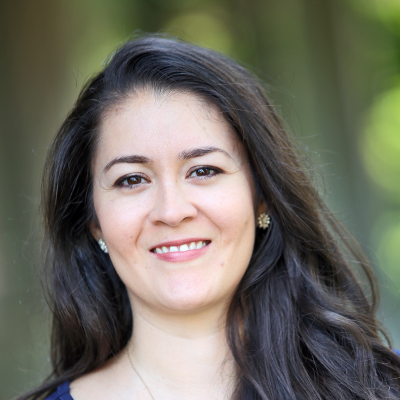
Dr. Sarah Rendón García
Sarah Rendón García, Ph.D. is an Assistant Professor in Human Development and Family Sciences at the University of Connecticut, Storrs. Trained as a developmental psychologist at Harvard University, her work foregrounds strengths-based and relational approaches to understanding the cognitive, social, and emotional lives of children and families impacted by immigration. Through qualitative and community-engaged methodologies, Dr. Rendón García centers family narratives, intergenerational dynamics, and the sociopolitical ecologies that shape development in mixed-status immigrant households. Her current research elevates the lived experiences of children and caregivers as they navigate undocumented status in the United States—often revealing how social-emotional learning unfolds within the context of caregiving and cultural continuity. Her work has been supported by the National Science Foundation, Ford Foundation, and NAEd/Spencer Foundation. As a mentor, she champions rigorous inquiry motional attunement, and critical reflexivity—modeling research as a tool for justice, healing, and collective understanding.
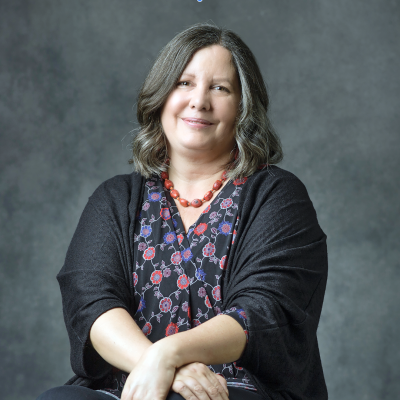
Dr. Zoe Taylor
Zoe Taylor, Ph.D., is an associate professor in Human Development and Family Science at Purdue University. Her mixed-method program of research examines sociocultural, environmental, and behavioral factors that contribute to psychosocial stress and health disparities in minoritized families, especially those disproportionately impacted by poverty including immigrant and single-mother families. Her first line of research is focused on how Latine children and adolescents from predominantly rural, immigrant, and migrant families cope with stress, and the effects of stress on mental health and well-being. Her second research area addresses key strengths and protective factors contributing to the mental health of primary caregivers, in particular for single mothers. She is an Associate Editor for the Journal of Research on Adolescence and a Consulting Editor for the Journal of Family Psychology and the Journal of Early Adolescence. She is a Fulbright-Schuman Scholar, and served on the Psychosocial Development, Risk, and Prevention NIH study section. Her research has been funded by the National Institute of Minority Health Disparities (NIMHD); the National Institute of Child Health and Human Development (NICHD); the United States Department of Agriculture; and the Spencer Foundation.
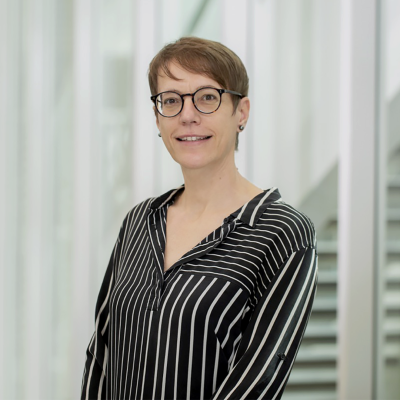
Dr. Antje von Suchodoletz
Antje von Suchodoletz, Ph.D., is an Associate Professor of Psychology at New York University Abu Dhabi (UAE), where she directs the Teaching, Learning, and Development Lab. A developmental psychologist by training, her passion for early childhood development and education is rooted in her early work as a school psychologist in Switzerland. Her current research centers on caregiver-child interactions and their vital role in early development. She is particularly interested in how caregivers and children influence each other and how context and culture shape their experiences. Her work spans diverse cultural and geographic contexts, including China, Germany, India, Jordan, UAE, US, and conflict-affected regions such as Kosovo and Ukraine. She integrates innovative technologies to better understand the mechanisms that make caregiver-child interactions enriching for children’s development and well-being. Antje has published over 60 peer-reviewed articles in journals such as Child Development, Developmental Psychology, Early Childhood Research Quarterly, Journal of Family Psychology, Learning and Individual Differences, Teaching and Teacher Education, and Learning, Culture and Social Interaction. She brings extensive experience in peer review, serving regularly as a reviewer for leading academic journals and international research funders. Since 2022, she has served on the editorial board of Early Childhood Research Quarterly, and in 2023, she was appointed Associate Editor. She is committed to supporting the next generation of scholars and is excited to contribute to the LEARN Program as a Scholarly Publishing and Peer Review Mentor.

Dr. Rebecca White
Rebecca White, Ph.D., (she/her or they/them) is a Professor in the School of Social and Family Dynamics at Arizona State University (ASU). Her program of research, which examines Latin American origin U.S. adolescents’ development within cultural, political, neighborhood, and family contexts, has been funded by the William T. Grant Foundation, the National Institutes of Health, and the National Science Foundation. Rebecca has published work that examines the intersecting implications of national policy, residential segregation, culture, and parenting for youth well-being and social-emotional and social-cognitive development in numerous outlets, including American Psychologist, Monographs of the Society for Research in Child Development, and JAMA Pediatrics. Rebecca has also contributed methodological advances that help to define the characteristics and features of higher-quality scientific inquiry, especially with populations who have been underserved by the psychological and developmental sciences, including Latin American origin U.S. families and immigrants. Rebecca enthusiastically engages in mentoring trainees, as well as early and mid-career scholars. She has served on numerous editorial boards, most recently as the Interim Editor in Chief of Child Development Perspectives.
Reviewer Zero Partnership
As part of the LEARN Mentorship Program, all scholars and the Scholarly Publishing & Peer Review Mentors will engage with Reviewer Zero—a collective committed to advancing equity, inclusion, and transparency in scientific peer review.
Founded in 2020, Reviewer Zero aims to shift peer review from a gatekeeping practice to one that is formative, constructive, and inclusive. Its initiatives focus on addressing bias, power dynamics, and the hidden curriculum in academic publishing, particularly within psychology and neuroscience in the U.S. context.
This pilot collaboration with LEARN offers a unique opportunity to expand Reviewer Zero’s tools and training to a global setting. By integrating its practices with international mentorship, the partnership helps equip both scholars and mentors to approach peer review as a process of growth, equity, and meaningful scholarly exchange.
Scholar Training
- Online workshops on peer review bias, ethical publishing, and navigating the hidden curriculum
- Access to drop-in Q&A sessions and one-on-one consultations for ongoing publishing support
- Coaching from Reviewer Zero co-mentors who model inclusive reviewing and support manuscript development
Mentor Engagement
- Access to short, targeted trainings including "How to Be the Reviewer You’ve Always Wanted", FAIR (Formative and Interactive Review) prereview trainings, and guidance for best practices.
- Optional participation in the FAIR program to support and co-review scholars’ manuscripts in development.
The LEARN Mentorship Program thrives thanks to the support of a diverse community of partners and contributors.
We are especially grateful to Dr. Vaishali Raval (Miami University), Co-Chair of SRCD’s International Affairs Committee (IAC), for her ongoing guidance in shaping the program’s global perspective.
While the formal application process is closed, opportunities to support LEARN through workshops, peer review initiatives, and professional development projects may arise. Researchers interested in occasional collaboration or volunteering are encouraged to contact us for more information.
For inquiries, please reach out to Roman McNeil, SRCD Science & Publications Programs Specialist, at rmcneil@srcd.org.